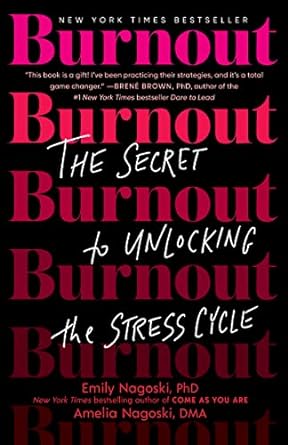More on this book
Community
Kindle Notes & Highlights
Read between
December 7 - December 28, 2022
Physical activity is not complete without sleep. While you sleep, your bones, blood vessels, digestive system, muscles (including your heart), and all your other body tissues heal from the damage you inflicted on them during the day. If you engaged in physical activity, your body will repair itself and grow stronger while you sleep. Physical activity without sleep, by contrast, leaves you more vulnerable to injury and illness than you would have been without the activity. If you’re not going to sleep, better not exercise.
Learning is not complete without sleep. Your memories consolidate and new information is integra...
This highlight has been truncated due to consecutive passage length restrictions.
Emotions are not complete without sleep. You can dream about beating the daylights out of your enemy, and you’ll wake up feeling released from the grip of your rage, better able to handle interpersonal conflict.
Inadequate sleep damages your physical health: chronic sleep deprivation—short sleep and disturbed sleep—is a causal factor in 20 percent of serious car accidents,17 and in every common cause of death, including heart disease, cancer, diabetes, hypertension, Alzheimer’s, and immune dysfunction, increasing risk by up to 45 percent.18 Poor sleep is a better predictor of developing type 2 diabetes than lack of physical activity, but when was the last time anyone told you to get enough sleep to prevent diabetes?19
Inadequate sleep impairs brain functioning, including working memory and long-term memory, attention, decision-making, hand-eye coordination, calculation accuracy, logical reasoning, and creativity.20
Your social life is also affected by lack of sleep: team communication in the workplace and group decision-making are impaired, while hostility and even unethical workplace behavior increase.22 Your emotional life is impacted, too: depression and sleep difficulties are closely intertwined, each exacerbating the other,23 and insomnia predicts suicidal thoughts, even in people without depression.24 Anxiety and sleep, too, are closely related and mutually causal.25 If you struggle with depression, anxiety, or other mental health issues—which more than twice as many women as men do (a conservative
...more
This is not an area of research where there’s any reasonable debate; the medical opinion is in: Sleep is good for you, and not sleeping is bad for you in every way—dangerous and potentially lethal. Three recent meta-analyses, comprising millions of research participants, found overall around a 12 percent greater risk of all-cause mortality among those who slept fewer than five or six hours a night.27 If you make only one change in your life after reading this book, let it be getting more sleep.
When we’re sleep deprived, our bodies try to compensate by activating the stress response—doses of adrenaline and cortisol to help us survive the temporary stressor of too little sleep—which masks the fatigue and impairment. The result is that sleep deprivation can act a little like alcohol; just as a person who has been drinking may be too impaired to know how impaired they are (“I’m fine, gimme the keys!”), a person who isn’t rested may be too sleep deprived to be aware of how sleep deprived they are.
moral judgment about sleep is built into the cultural history of the West.
We’ve made a virtue of being exhausted, of denying ourselves rest.
Human Giver Syndrome messes with women’s sleep.
As human givers, women are expected to sacrifice their sleep for the benefit of others. So we deprive ourselves of a basic physiological need—not a lot, necessarily, but every day, over and over—and the accumulating deprivation wears us down, day by day, until there’s too little left to do all the other things life expects of us.
you’ve dealt with the stressors but haven’t dealt with the stress itself, your brain won’t let you rest. It will constantly scan for the lion that’s about to come after you, so when you try to go to sleep, your brain won’t let you fall asleep, or it will wake you up over and over, checking for that lion. Complete the cycle, so your brain can transition into rest.
So how much rest is “adequate”? Science says: 42 percent.
the percentage of time your body and brain need you to spend resting. It’s about ten hours out of every twenty-four. It doesn’t have to be every day; it can average out over a week or a month or more. But yeah. That much.


